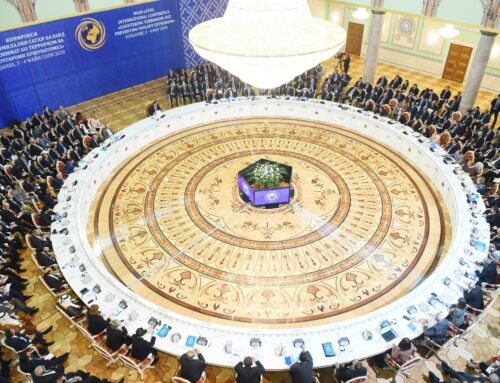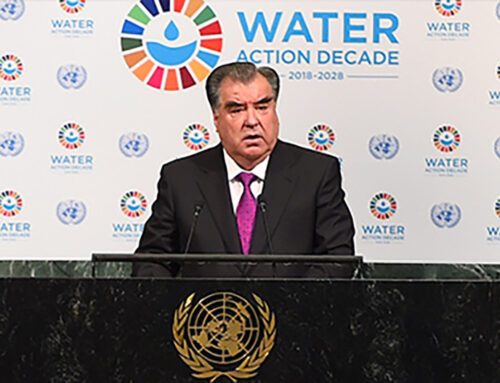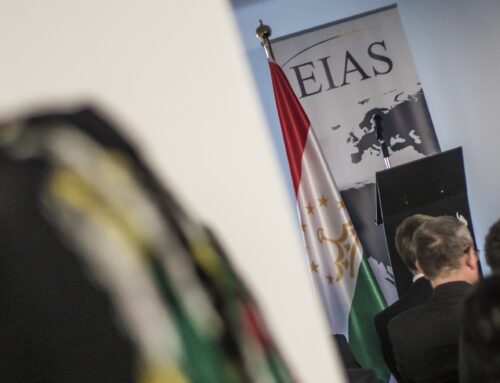Visitors to the lush parks and gardens of Dushanbe, the bustling capital of Tajikistan, or to the valleys and lakes beneath the towering, snow-capped Pamir mountains, would be forgiven for thinking they had arrived in paradise. It is hard to imagine that these same parks, gardens, valleys and mountains were the scene of a bloody civil war which ended only 17 years ago, devastating the country, wrecking the economy and claiming the lives of over 100,000 people.

Tajikistan is one of the five Central Asian republics which emerged following the collapse of the Soviet Union in 1991. It is the most mountainous country of Central Asia, sitting spectacularly on the roof of the world, sharing a 1,340 kilometre border with Afghanistan and counting China, Pakistan, Uzbekistan, Kyrgyzstan and Kazakhstan as immediate or near neighbours. It nestles in an area characterised by warfare, terrorism, drugs and the inexorable rise of Islamic fundamentalism. And yet, under the reliable leadership of President Emomali Rahmon, Tajikistan has remained a haven of peace and tranquillity, a profound example to the world of how sound leadership can pave the way towards economic growth and stability.
Almost immediately after independence, Tajikistan was plunged into a civil war that saw various factions fighting one another. In 1997, a ceasefire was reached between President Rahmon and the ‘United Tajik Opposition’. Peaceful elections were held in 1999 and a central government began to take shape.
President Rahmon has maintained a steady grip on power ever since, remaining hugely popular and winning successive elections.
Given its strategically important position, the EU and the US should pay more attention to Tajikistan. They can find, in President Rahmon, a constructive ally and someone who holds the line against the influx of Jihadi terrorists and drug runners from Afghanistan and other neighbouring countries. President Rahmon has actively cooperated with Russia, NATO and the US in waging the war on terror.
Tajikistan was the poorest of the post-Soviet republics, but is pulling itself up by the bootstraps. Ambitious plans to harness power from major hydro-electric schemes should see the nation fulfilling its own electricity needs and exporting surplus power to Afghanistan and Pakistan, enhancing prospects for economic growth and the creation of jobs and helping to bring peace and security to these troubled and poverty-stricken zones. Tajikistan is also a major exporter of aluminium and has vast, so-far untapped mineral resources which will make it an attractive target for inward investment.
The fact that tourism and in particular, eco-tourism, is now a growth industry in Tajikistan, best illustrates how far this dynamic nation has come since the civil war ended in 1997. President Rahmon has provided a safe pair of hands on the steering wheel guiding Tajikistan to a bright future.
STRUAN STEVENSON, MEP
Struan Stevenson is a senior Conservative Euro MP representing Scotland in the European Parliament. He was first elected in 1999 and is President of the Intergroup on Climate Change, Biodiversity and Sustainable Development.




